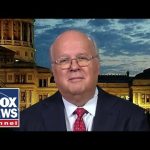Charlie Kirk, a well-known conservative voice, is making waves across college campuses in America, capturing the attention and enthusiasm of young people. Recently, he’s been touring cities like San Diego and College Station, Texas, witnessing massive crowds eager to hear a positive outlook on the future. This trend marks a significant shift in the engagement of younger generations with conservative ideals, as they rally behind the uplifting messages that Kirk and others are presenting.
Kirk’s observations reveal a growing support for President Trump among young Americans. He emphasizes that these students are yearning for an optimistic perspective, contrasts this with the often cynical narratives pushed by the left. Instead of focusing on doom and gloom, like climate catastrophe and systemic racism, conservative messages are filled with empowerment—a celebration of family values, church attendance, and the potential for business ownership. In stark contrast, the left’s messages can feel heavy and negative, leading to a sense of unbounded hopelessness about the country and its future.
His electrifying campus debates have become a vehicle for change, offering students not just an intellectual challenge but a source of validation. Kirk describes his mission as essential: first to show conservative students that they are not isolated in their beliefs and second to challenge the prevalent liberal ideologies dominating campus discussions. By facilitating open dialogues, he is not only fostering a sense of community among conservative students but also laying the groundwork for an expansive discourse on important issues that affect their lives.
Social media plays a big part in Kirk’s outreach strategy. With millions of views on platforms like TikTok, he brings authentic conversations about pressing societal issues right to the devices of young viewers. This has allowed students to engage with the material more comfortably, as they see real discussions rather than polished, scripted narratives from traditional media outlets. By doing so, Kirk is stirring interest and encouraging them to think critically about the issues facing their country.
At institutions like the University of California in San Diego, which is typically known for its liberal leanings, the response has been overwhelmingly positive. This reflects a broader generational shift, with many young people turning away from the progressive ideologies that they were expected to embrace. The gathering crowds and fervent engagement at these events signal that a cultural transformation may be underway, perhaps akin to the monumental changes witnessed during the Woodstock era.
In summary, through his campus tours, Charlie Kirk is not just speaking to students; he’s inspiring a movement. By cultivating a sense of optimism and providing a platform for conservative thought, he is energizing a generation that has felt marginalized in the current political climate. As they embrace these messages of hope, a new chapter may well be written in America’s ongoing political narrative—one that could redefine the future for the next generation.




